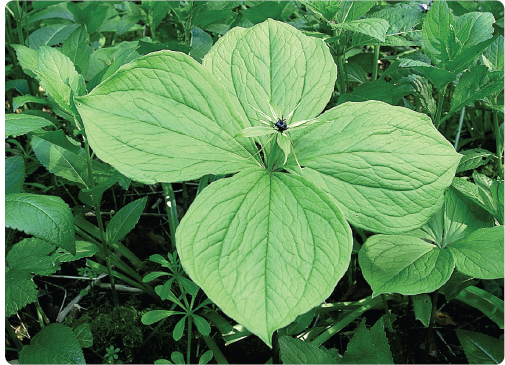
Since man first colonised the British Isles, trees have been viewed as a resource, and treated as such. That is not to say that their significance was not understood, but it is only perhaps in the last two centuries, and particularly in the last 50 years, that they have begun to be appreciated for their intrinsic interest and beauty, and planted to this end.
It is important to remember that almost any British woodland that you come across will, at the very least, have been heavily influenced by man and its current appearance will be a direct result of centuries of management. So it is ironic, perhaps, that many of our finest pockets of semi-natural woodland have also been destroyed by man, grubbed out or clear-felled to gain agricultural land or a quick profit. From an ecological point of view it is not so much the individual trees themselves that are important but the woodland habitat that they collectively form. In Britain and Ireland today, our ancient semi-natural woodland is just a tiny fraction of what once cloaked the land, and especially in the last 50 years the loss and degradation has continued apace. Some of our best woodlands are protected by nature reserve status, for what that’s worth, but a significant number remain in private hands and are depressingly unprotected. Of course, enlightened landowners do appreciate their woodland, often for its contribution to the landscape generally as much as for its wildlife value. However, in many cases, woodland is seen as a resource pure and simple. Its continuing economic value is what saves it from destruction, and it is the need to obtain tree-felling licences, rather than any conservation law, that controls its exploitation.
For me, considering how little we have left, the loss or degradation of any more ancient semi-natural woodland is wanton vandalism. To combat future decline, I would urge anybody interested in trees to donate as much money as possible to conservation bodies for the purchase of land. In this context, the only organisations that I would consider donating money to personally are the Wildlife Trusts, the Woodland Trust, the National Trust and the Royal Society for the Protection of Birds.
Even today, while most appreciate the beauty of trees, not everybody respects or understands their role in ecology, or their significance to native wildlife. I hope that Complete British Trees will instil in its readers a greater respect for the importance of British and Irish trees.

Herb-Paris is a floral indicator that the woodland in which it grows is ancient.
This massive coppiced Ash stool is probably more than 600 years old.